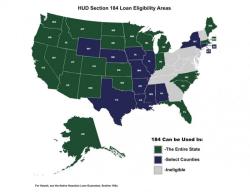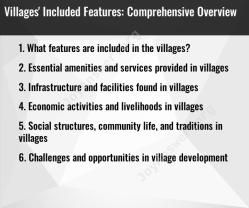How much income is needed to buy a home?
The income needed to buy a home can vary widely depending on several factors, including the location of the home, the price of the home, your credit score, the down payment you can make, and your existing debt obligations. Here are some key considerations:
Home Price: The price of the home you want to buy is a significant factor. More expensive homes require a higher income to afford the mortgage payments.
Down Payment: The larger the down payment you can make, the lower your mortgage amount will be, which can make homeownership more affordable. A common down payment is 20% of the home's purchase price, but there are options with smaller down payments.
Mortgage Interest Rates: The interest rate on your mortgage will affect your monthly payments. Lower interest rates can make a home more affordable.
Debt-to-Income Ratio: Lenders look at your debt-to-income ratio to determine how much of your income can go towards your mortgage. Typically, your total debt payments (including the mortgage) should be below 43% of your gross income, but this can vary by lender.
Credit Score: Your credit score plays a significant role in the interest rate you'll be offered. A higher credit score can result in a lower interest rate and, therefore, lower mortgage payments.
Property Taxes and Insurance: Don't forget to consider property taxes and homeowners insurance in your budget. These can add to your monthly housing expenses.
Other Costs: Homeownership comes with additional costs, such as maintenance, utilities, and possibly homeowner association fees.
To estimate the income needed to buy a home, you can use a mortgage affordability calculator, which takes all these factors into account. These calculators can be found on many financial websites and are provided by most banks and mortgage lenders. They will give you a rough idea of the income required to afford a specific home.
It's important to remember that buying a home is a significant financial commitment, and it's not just about whether you can make the monthly mortgage payment. You also need to consider your overall financial health, job stability, and future financial goals when determining how much home you can afford. Consulting with a financial advisor or a mortgage professional can be helpful in this process.
Home Buying and Income Requirements: A Financial Overview
There is no one-size-fits-all answer to the question of how much income is needed to buy a home. The amount of income you need will depend on a number of factors, including:
- The down payment you can afford
- The interest rate you qualify for
- The monthly mortgage payment you can afford
- Your other debts and expenses
Lenders typically use a debt-to-income (DTI) ratio to determine how much of a mortgage you can afford. The DTI ratio is calculated by dividing your monthly debt payments by your monthly income. Most lenders prefer to see a DTI ratio of 50% or less.
For example, if your monthly income is $5,000 and your monthly debt payments are $2,000, your DTI ratio would be 40%. This means that you could afford to have a monthly mortgage payment of up to $1,000.
Another important factor to consider is the down payment. A larger down payment will reduce your monthly mortgage payment and make it easier to qualify for a loan. However, most lenders require a down payment of at least 3%, and some may require more.
Calculating the Minimum Income Needed to Buy a Home
To calculate the minimum income needed to buy a home, you can use the following formula:
Minimum income = (Monthly mortgage payment + Property taxes + Homeowners insurance) / (1 - DTI ratio)
For example, if you want to buy a home with a monthly mortgage payment of $1,000, property taxes of $200, and homeowners insurance of $100, and you want to keep your DTI ratio at 40%, your minimum income would be $3,750 per month.
Factors Affecting Home Affordability Based on Income
In addition to your income, there are a number of other factors that can affect your home affordability, including:
- Interest rates: Higher interest rates will result in higher monthly mortgage payments.
- Down payment: A larger down payment will reduce your monthly mortgage payment.
- Debt-to-income ratio: A lower DTI ratio will make it easier to qualify for a loan and get a lower interest rate.
- Property taxes: Property taxes vary by location. In some areas, property taxes can add a significant amount to your monthly housing costs.
- Homeowners insurance: Homeowners insurance rates can also vary by location and the type of home you buy.
Budgeting and Financial Planning for Homeownership
Buying a home is a major financial commitment. It is important to create a budget and financial plan before you start shopping for a home. This will help you to make sure that you can afford the monthly mortgage payments, property taxes, homeowners insurance, and other costs of homeownership.
When creating your budget, be sure to factor in all of your income and expenses. This includes your salary, wages, investments, and any other income you receive. It also includes your monthly debt payments, such as credit card bills, student loans, and car loans.
Once you have created a budget, you can start to save for a down payment. The more money you can save for a down payment, the smaller your monthly mortgage payment will be. You should also start to save for other costs associated with homeownership, such as closing costs and moving expenses.
Beyond the Numbers: Emotional and Lifestyle Considerations in Home Buying
Buying a home is more than just a financial decision. It is also an emotional and lifestyle decision. When you are buying a home, it is important to consider your needs and wants.
Do you want a single-family home, a townhome, or a condo? Do you want a home with a yard? Do you want to live in a city, suburb, or rural area?
It is also important to consider your lifestyle. If you have a family, you will need to consider the needs of your children. If you work from home, you will need to consider a home with office space.
Buying a home is a big decision, but it can be a very rewarding one. By carefully considering your financial situation, needs, and wants, you can find the perfect home for you and your family.













